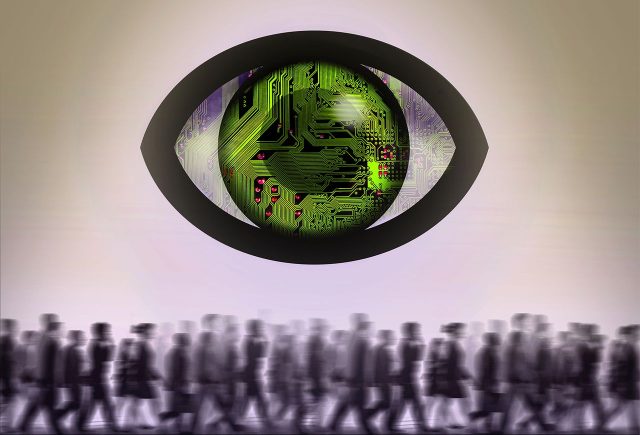
‘Against the Machine: On the Unmaking of Humanity’ by Paul Kingsnorth
“Paul Kingsnorth tends to think in the most sweeping terms imaginable,” said Alexander Nazaryan in The New York Times. In Against the Machine, his recent best seller, the British novelist, poet, and essayist urges us all to rediscover our humanity before “the Machine” fully exterminates it. And by “the Machine,” he means a belief system born during the Enlightenment that glorifies technological progress and has induced the people of the West to gradually cede power over their lives to government, corporations, and other large institutions. Kingsnorth has spread these ideas via his Substack, said Justin Ariel Bailey in Christianity Today, and he has now consolidated his missives into “a trenchant and terrifying account of what modern people have sacrificed in exchange for technology’s promise of power and autonomy.”
“Kingsnorth is a fascinating man,” said Corbin K. Barthold in City Journal. In his youth, he was an eco-activist who chained himself to bulldozers, and by his early 40s he was both an accomplished novelist and one of the U.K.’s leading environmentalists. But he lost faith in the green movement, and in 2014 he and his wife decamped to rural Ireland, where they homeschool their children and grow much of their food. Eventually, he joined the Eastern Orthodox Christian church. “Kingsnorth is a gifted stylist and a syncretic thinker,” and his ideas, at their best, are “sharp and layered.” In this “engrossing but often vexing” book, unfortunately, he “rests his boldest claims on little more than vibes.” He romanticizes the rural life of past centuries, ignoring its hardships, while his distrust of economic data “leaves his treatise fatally incomplete.”
Still, “the deeper provocations of Against the Machine are worth hearing, however gloomy,” said Cal Revely-Calder in The New Yorker. “Kingsnorth is surely right that public life has been overtaken by a narrow fixation on data and measurement” and that technologies of convenience are robbing us of skills, such as cooking, that were once foundational to the human experience. He tells us that the Machine has severed our ties to the four anchors of prior human cultures: people, place, prayer, and the past. But he has no concrete recommendations on how to fight the Machine beyond walking away from it—or at least limiting our participation in its growing omnipotence—while seeking to support small communities built upon older values. Even Kingsnorth, however, had to access the internet and work at a laptop to produce his book. In short, “we can’t walk away when there is no ‘away.’”
‘Nobody’s Girl: A Memoir of Surviving Abuse and Fighting for Justice’ by Virginia Roberts Giuffre
“Given its punishing nature, why read this book?” asked Emma Brockes in The Guardian. Virginia Giuffre, who died by suicide at 41 earlier this year, went public years ago with her allegations of being raped as a 16-year-old by Jeffrey Epstein and Ghislaine Maxwell and subsequently being trafficked by the pair to Britain’s Prince Andrew and other powerful men. (Andrew, for his part, denies any sexual contact with Giuffre.) “But while the book is relentlessly, shockingly hard, it is also a clear-eyed and necessary account of how sex offenders operate.” The deft narrative constructed by Giuffre and a co-writer “does what deposition can’t by taking us into the room with her.” And though it adds only one figure to the list of men Epstein allegedly trafficked underage girls to—an unnamed former prime minister—it does make Maxwell, the deceased Epstein’s accomplice, look entirely undeserving of clemency.
It’s also “the saddest story I’ve read in years,” said Alexandra Jacobs in The New York Times. Giuffre describes being sexually abused throughout her childhood, beginning at age 7, allegedly at the hands of her father and a friend of his, both of whom eventually raped her. (Her father denies her accusations against him.) Giuffre says she later was raped in a car by two teenagers and by a stranger who picked her up when she ran away from a juvenile detention center. She was thus a vulnerable target at 16 when she landed a job at Donald Trump’s Palm Beach, Fla., resort and was quickly lured by Maxwell into Epstein’s twisted world. While “it will take years to unfurl the tentacles Epstein wrapped around finance, law, and politics,” Nobody’s Girl “floats free, self-assured and self-contained—a true American tragedy.”
Some of Giuffre’s testimony here “feels unsatisfyingly neat,” said Claire Allfree in The Telegraph (U.K.). She oddly claims, for example, that the famous snapshot showing Prince Andrew and her together on the night of their alleged first sexual encounter was taken because she wanted to share the moment with her mother. Still, “the story is deeper and darker than this book can say,” because even Giuffre feared naming all accomplices she knew of. For standing up to Epstein, she “doesn’t deserve our scrutiny so much as our admiration.”
An examination of humanity in the face of “the Machine” and a posthumous memoir from one of Jeffrey Epstein’s victims, who recently died by suicide






